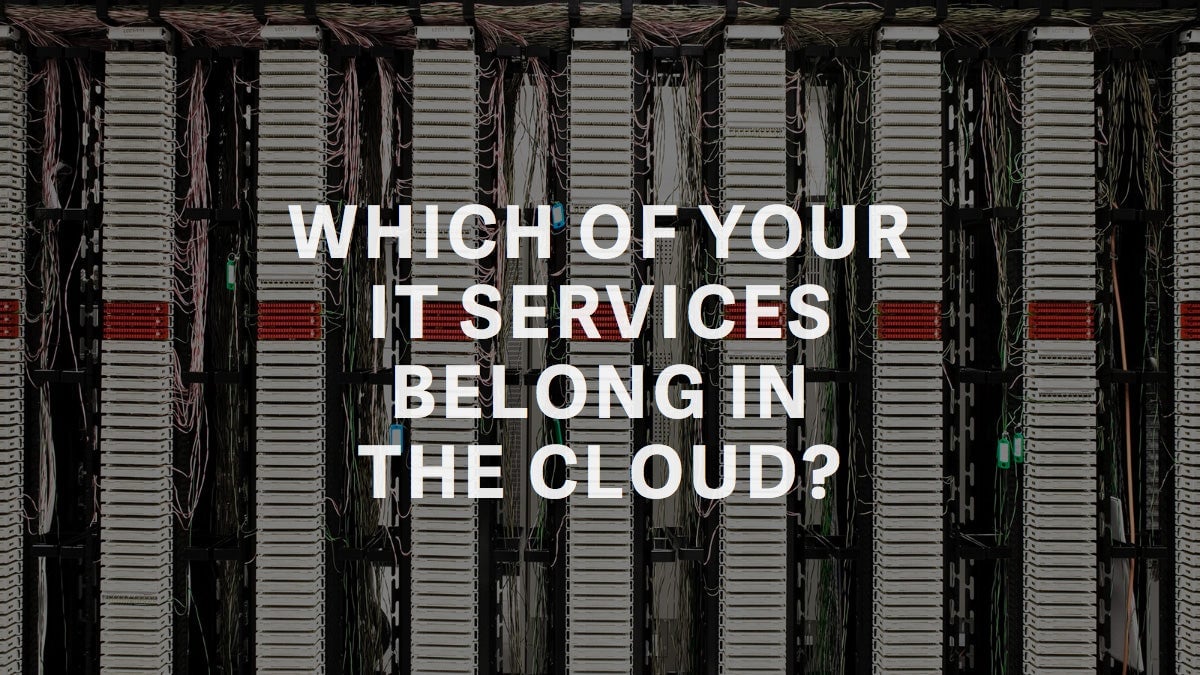Why the right cloud partner can help you beat the competition
Every year, the surge of Cyber Monday shoppers sends computer servers worldwide into overdrive. Businesses in retail, manufacturing, and logistics have moved their business into the cloud especially for traffic spikes like this, when they can burst and spin-up resources quickly, then spin them down again if demand subsides.


Every year, the surge of Cyber Monday shoppers sends computer servers worldwide into overdrive. Businesses in retail, manufacturing, and logistics have moved their business into the cloud especially for traffic spikes like this, when they can burst and spin-up resources quickly, then spin them down again if demand subsides.
Infrastructure that handles any storm: that’s the value of moving to the cloud. It lets your developers focus on your application layer, where you’re creating value for your customers. But to actually realize those benefits, you need a team of experts to help the cloud work for you.
Expanding your IT capabilities
Unfortunately, a lot of IT departments decide to migrate to the cloud without help, never getting the value they expect. To management’s horror, botched migrations can burn huge amounts of capital and lock up engineering resources, often for services that are wrong to begin with.
The vital questions every CIO needs to ask is: Which of my IT services belong in the cloud? And what’s the true cost of migration?
The answer will be different for every enterprise; there’s no formula. A lot of companies make the wrong choice. In fact, 1/3 of IT professionals surveyed have regretted the decision to move an IT service to the cloud so much that they have subsequently moved it back on-premise, or are planning to.
The lesson is pretty clear: If you’re going to focus on your application layer, someone else needs to be watching the IT services migrating to the cloud.
Making integration work
When you have a partner from start to finish, you make the right choices on the first try, which means cost savings from the start. The whole planning and selection process can take two to six weeks; it helps to have experts on site to help work out a realistic ROI calculation.
Once you have a list of good cloud candidates, each service needs to be looked at through a security lens. Are there any control gaps between the requirements of the app and what the cloud provider’s infrastructure offers? This is tedious, specific work, but it’s crucial someone dedicate time to examining it.
Once you decide which services you’ll migrate to the cloud, it’s a bad idea to leave IT without extra support. Many IT departments lack the capabilities to migrate, integrate, and manage workloads in the cloud. Partnering with a cloud service provider from the start is usually cheaper than training your IT staff or hiring consultants to come in and clean things up if all goes awry.
Once cloud services are up and running, businesses tend to overlook the costs associated with training staff to utilize the cloud on an ongoing basis, such as with incident management. They also need to manage agreements with all partners and vendors, and know how to hold them accountable if services aren’t delivered properly. Partners can tackle that, too. That way, your team can focus on beating the competition.
Learn more about the importance of finding a full-service cloud partner.
This article was produced on behalf of CDW by the Quartz marketing team and not by the Quartz editorial staff.